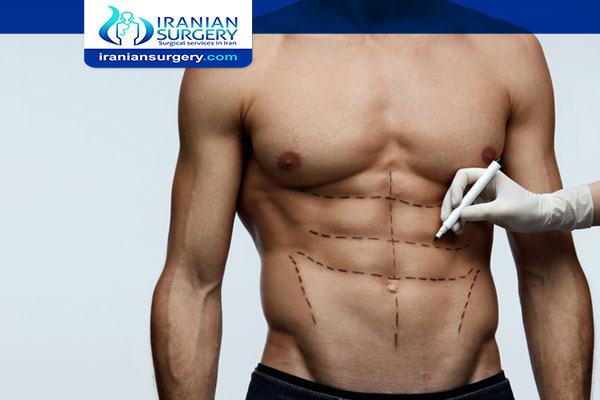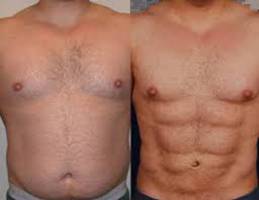Is abdominal etching permanent?

Abdominal Etching
What is Abdominal Etching?
Abdominal etching also known as ‘six-pack liposuction’ or ‘six pack surgery’ is a type of liposuction procedure. Like traditional liposuction, abdominal etching uses a suction technique to remove fat deposits from underneath your skin. What makes abdominal etching unique are the results that it aims to achieve.
Instead of removing fat from your midsection with the simple goal of a slimmer appearance, abdominal etching removes fat deposits in an advanced and strategic way. This type of liposuction molds and shapes your abdominal wall so that your ab muscles look more prominent.

About Iranian Surgery
Iranian surgery is an online medical tourism platform where you can find the best cosmetic Surgeons in Iran. All cosmetic surgeons working with Iranian Surgery specialize in plastic surgery and perform cosmetic surgeries in well-equipped hospitals, so after Abdominal Etching surgery in Iran you will face the least possible complications.
For more information about the cost of Abdominal Etching in Iran and to schedule an appointment in advance, you can contact Iranian Surgery consultants via WhatsApp number 0098 901 929 0946. This service is completely free.
Before Abdominal Etching
Am I a candidate for abdominal etching?
As with any surgical procedure, abdominal etching carries a risk of complications. The ideal candidate for abdominal etching is a healthy person who doesn’t smoke, has no life threatening health conditions, and doesn’t have obesity.
Abdominal etching works best for people who are less than 30 percent over their ideal body weight, with healthy muscle and skin tone. Your age and your skin’s elasticity should also be considered when being realistic about the results of abdominal etching.
People who undergo any type of liposuction must be healthy enough to safely go under anesthesia.
This procedure is suitable for individuals who:
. Have a healthy diet
. Exercise regularly
. Struggle with 'resistant tummy fat'
. Already have toned underlying abdominals
. Desire more defined abdominal lines
. Have realistic expectations
. Know the advantages and disadvantages of cosmetic surgery
You are still a good candidate if you have undergone tummy tucks or liposuction in the past, but still desire a more chiseled appearance. But before going ahead, it is a good idea to speak to your doctor to discuss whether abdominal etching is right for you.

Targeted areas for abdominal etching
Abdominal etching only targets your waistline and midsection. The rectus abdominis and obliques are the most affected by this type of liposuction.
Risks and side effects
Abdominal etching is considered a low-risk cosmetic procedure. But that doesn’t mean there isn’t a risk of complications and side effects.
Common side effects after a liposuction procedure like abdominal etching include:
. Nerve and blood vessel damage
. Skin discoloration
. Bumpy skin or irregular healing
. Swelling
. Fluid accumulation
. Anesthesia bruising or headaches
You may also notice pus or discharge coming from the site of your procedure. If the pus is greenish or yellow-tinged, contact your doctor.
Having a fever in the days after an abdominal etching an also be a sign of an infection. Let your doctor know about these side effects, and seek emergency medical care right away if you suspect you have an infection.
Preparing for abdominal etching
Preparing for abdominal etching is a similar process to getting ready for traditional liposuction. The first part of the process involves a detailed consultation with a licensed and board-certified cosmetic surgeon. You’ll talk about your expectations for the procedure, as well as any unique caveats for your specific body type and health concerns.
For 2 weeks before the procedure, you’ll need to avoid taking aspirin, herbal supplements, and any medication that can thin your blood and increase your bleeding risk. Your doctor should be aware of any prescription medications that you’re taking before your procedure. You may also be advised to stop smoking if you currently smoke.
Before the procedure, you’ll need to arrange a ride to and from the facility where it’s being performed. The pain and swelling are minimal, but you’ll still not be permitted to drive yourself home.
During Abdominal Etching
How does abdominal etching work?
Abdominal etching works similarly to traditional liposuction, but there’s one important distinction. The fat deposits that cover your abdominal muscles are carefully carved off your body, using small incisions usually based around your belly button.
When done carefully, this technique can deepen the natural grooves in your body and make your ab muscles appear much more prominent.
Fat deposits may also be taken from the sides overlying your oblique abdominal muscles to narrow your midsection. When the swelling subsides and the area heals, you should see a visibly toned midsection.
Procedure for abdominal etching
Your abdominal etching procedure will take about an hour, on average.
- While you’re standing up, your doctor will mark the areas that are being sculpted and enhanced. This may feel a bit like your abs are being drawn on. Once you’re both satisfied with the intended result, you’ll be ready to lie down and prepare for surgery.
- A foam dressing that matches the drawing on your body will then be applied to your body. You’ll be put under general or local anesthesia, depending on your preference and your doctor’s recommendation.
- The skin on your belly will be numb as the doctor makes incisions, called ports, to access and remove the fat deposits. This process will be done using a scalpel and a cannula pump (an instrument that drains fluid or fat deposits). The ports will be open until the end of the surgery to drain fat, fluid, and blood from your body.
- Your incisions are then closed and dressed. A compression garment is applied to your midsection to ensure that the belly begins to heal. The foam dressing that was applied before surgery stays on under the compression garment.
- After the fat is removed and the anesthesia wears off, you’ll need to keep the compression garment on until your doctor gives you the go-ahead to remove it, typically 4 to 6 weeks.
After Abdominal Etching
Abdominal Etching Recovery
Recovery from abdominal etching takes some time. Immediately after the procedure, you may need to wear a compression garment to make sure that the cosmetic surgeon’s work seals and heals smoothly.
You’ll most likely be able to resume most of your normal activities 2 weeks after abdominal etching.
One study reported that you can resume exercise as quickly as 5 days post-surgery, but that advice may vary according to your specific procedure.
In any case, avoid strenuous exercise until you’re cleared by your doctor. This includes anything that would contract the ab muscles, such as crunches and planks.
After 2 to 5 months, you’ll be able to see the full results of your abdominal etching procedure. As swelling subsides and your skin begins to adhere to its new shape, you should be able to see your abs more visibly and a tighter, more toned-looking midsection.
Abdominal etching claims to produce permanent results, with some caveats. Weight gain and pregnancy can erase the results of this procedure. Also, the natural aging process of your body means that eventually your abs might not be as defined and visible as they are right after the procedure.
Abdominal etching vs. traditional liposuction
Abdominal etching is similar to traditional liposuction in that the preparation for surgery, recovery time, and requirements for the procedure are very similar.
The results of abdominal etching are much more prominent and dramatic than traditional liposuction. It may also be more expensive and less convenient to find a provider who’s trained in this specific procedure.
Abdominal etching is considered a form of advanced or 3-D liposuction, which means the results are extremely specific and target certain areas of your body.
Traditional liposuction isn’t so exact. However, this means that if abdominal etching doesn’t heal correctly, or if your body simply heals in a way that your doctor doesn’t anticipate, you’re more likely to need corrective surgery.
In a review of 512 cases of men who had abdominal etching procedures, only 3 people needed corrective surgeries.
Sources:
. https://www.healthline.com/health/cosmetic-surgery/abdominal-etching

